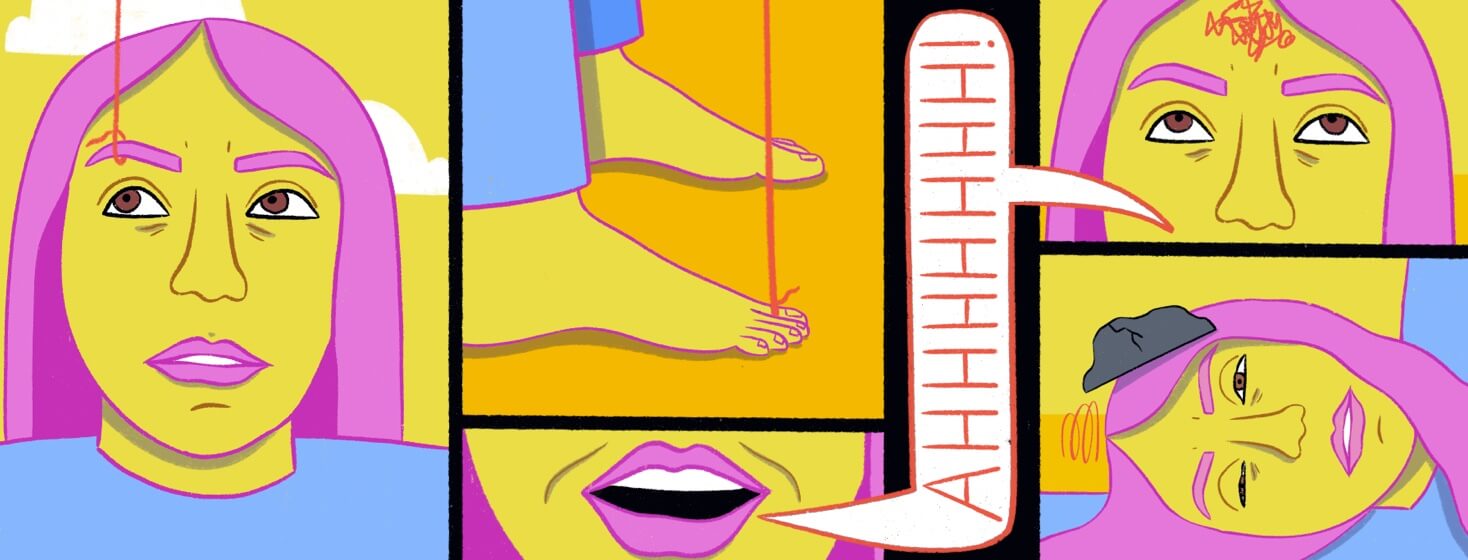Before, During, and After: What My Seizures Feel Like
Are you the parent or caregiver of a person who has epilepsy? Do you wish to understand what it's like to experience epilepsy? Before that, let me introduce myself. I have had generalised epilepsy and dystonia since I was 10 years old, and I am now an adult living with both conditions.
It took me a very long time to find the words to describe how it feels to have seizures at any age, whether I was a child, a teenager, or an adult. It was, and still is, something beyond words. I would never want anyone to have to experience seizures if it were possible.
Identifying seizure triggers
Let me take you through the phases of my seizures – before, during, and after. There are external factors that trigger my epilepsy. My seizures typically occur when I am careless about avoiding my triggers, which is why it's so important that we are aware of them.
Learning how to manage my lifestyle and figuring out what sets off a seizure is a lengthy process. It can be a rollercoaster ride to identify the triggers, but you'll figure it out eventually.
What it feels like before my seizure
My warning signal to my body is a sharp tug on my eyebrow (on either side). The movement usually alerts me to immediately stop everything I am doing. It is time for me to check myself and take the rescue medication (a benzodiazepine) that I keep on hand for unexpected circumstances. For me, this can help lessen the severity of the seizure or stop it from fully coming on.
Next, a strange, painful pull on my right toe will begin, signaling that I need to take a walk to clear my head and relax my body. I usually do not speak to anyone at this point. I simply go on a walk while engaging in calming activities like petting my cat, gazing at the sky, or anything else that helps me relax.
Panic and rescue meds
This is the point at which I experience panic and have to actively calm down to prevent myself from having a seizure. To maintain my own sense of composure, I often find myself laughing for no apparent reason.
I usually do everything I can in my power to avoid having a seizure – wacky behavior and all. If I cannot control it, then it will lead to a seizure. Sometimes my medicines and my strategies just don't work. My epilepsy wins on that day. It's beyond my control sometimes.
Let's go on to the stage when the seizure is occurring.
During the seizure
When I lose control in the "before" stages, my body begins breaking down. It feels like every strand of my muscles starting from the toes are twisting slowly until it reaches my head. I lose all motor functions. At that moment, I have no idea what's happening besides the pain that I feel, as the pain slowly reaches my forehead, and then I lose consciousness.
Every time it happens, it feels like a near-death experience. It's a terrible feeling, like someone trying to squeeze the blood from each muscle tissue. I'll usually scream due to the intense pain it causes, and also to alert anyone nearby about my seizure, as I won't have any idea if there are people around me.
Every attack is traumatizing in a way that's hard to put into words. Explaining it is difficult for me.
After my seizure
After my seizures, I always end up unconscious. I'll be weak and dizzy, shaky when I wake up, and sick to my stomach. It is as if a large stone were dropped on my head, the weight is crushing. I also end up having a bruised tongue that will take a few days to heal.
It usually takes me a few days to get back to normal and resume regular activities. Every time I wake up, my parents are ready with a bucket because they know I will be throwing up. Sometimes I would wake up from an seizure and have another one right away. I have no idea why that occurs.
I will be hospitalized if I have a third seizure. I realize that, after having my seizures, I forget many things. However, I am grateful for the reminders I have in my phone and my notebook to help me stay on track.
What do seizures feel like for you?
That sums up the entirety of my experience of what seizures feel like for me. The symptoms of epilepsy, as well as the disease itself, differ from person to person.
But I believe epilepsy should not stop you from living the life you want. Work around epilepsy, have a healthy lifestyle, and keep learning about yourself and your body. That's the beauty of life – we keep learning.
How do you describe what it feels like to have a seizure? Comment below to share your experience.

Join the conversation